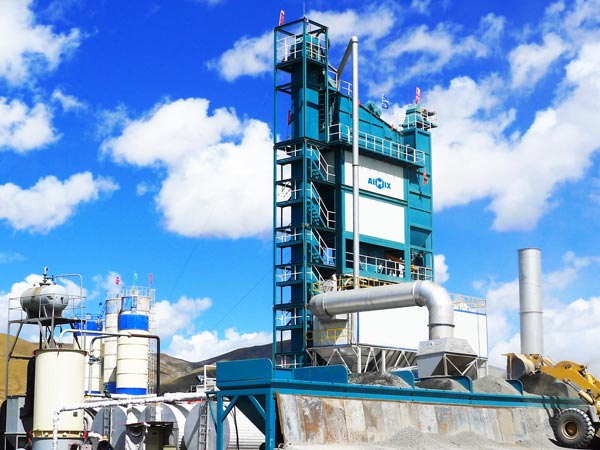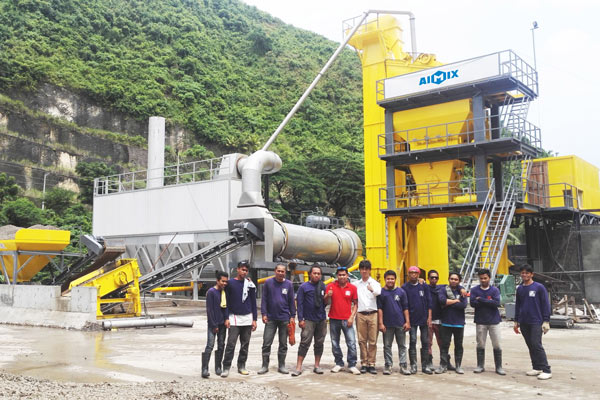We are all very familiar with blacktop or tar roads, that we almost certainly travel on in our vehicles during our daily commute, or when we transport ourselves from one place to another. To construct these roads use, is often made of asphalt concrete to provide a hard wearing surface over a properly consolidated foundation of stone or other material.
The Role of Asphalt Mixing Plants
To produce this asphalt concrete, use is made of an asphalt mixing plant that mixes hot bitumen with stone aggregate and some fillers. This mixed material is then transported to the location where it is to be used, laid down in layers that are then further consolidated with rollers and other equipment to give us the blacktops that we are familiar with. These asphalt batch mix plants can be of various types depending on the project for which they are being used.

Types of Asphalt Mixing Plants
Asphalt batch mix plants: These plants mix definite and measured quantities of hot bitumen and other components, and unload that batch into transport equipment of various kinds that are suited to carry this hot mixture to the place where it is needed for use. There is a gap between two batches that can be anything up to a minute.
Drum mixing plants: This type of asphalt mixing plant gives a continuous supply of asphalt concrete without interruption. It is used on large projects where there is a need for this continuous operation. You can check different kinds of asphalt plants here: http://aimixasphaltplant.com/types-asphalt-plants/.

Variations in Transport Equipment
Asphalt mixing plants can also differ based on the type of transport equipment used to shift the asphalt concrete from the plant to the intended paving surface. Some plants are mobile and mounted on a truck chassis, allowing them to be moved easily between projects without reinstallation. These mobile asphalt plants for sale have capacity limitations and are suitable for smaller and medium-sized projects. Capacities can range from 10 to 160 tons per hour.
On the other hand, stationary asphalt plants have higher capacities, ranging from 60 to 400 tons per hour.
Working of Asphalt Batching Plants
All asphalt batching plants consist of similar parts, although the control systems may vary in sophistication. Here’s how they work:
- Drying: Cold aggregates, often damp with dew or rain, need to be dried as moisture can affect the bitumen. Burners are used to heat the aggregates. Once dried, they pass over a vibrating screen that separates them into various sizes and removes any dust, which can be collected for disposal or used as fillers.
- Weighing: The aggregate is precisely weighed according to design specifications. Simultaneously, the filler and bitumen are also weighed.
- Mixing: Hot aggregate and fillers are added to the mixing apparatus, and then sprayed with the desired quantity of hot bitumen. Mixing occurs in drums with paddles for about half a minute or less.
- Discharge: The asphalt concrete is then discharged into waiting trucks. Continuous mixing plants use heated asphalt storage silos, which discharge the asphalt concrete into trucks. Check working process through the video:
Asphalt mixing plants play a vital role in road construction, ensuring the production of quality asphalt concrete for durable and reliable road surfaces.
